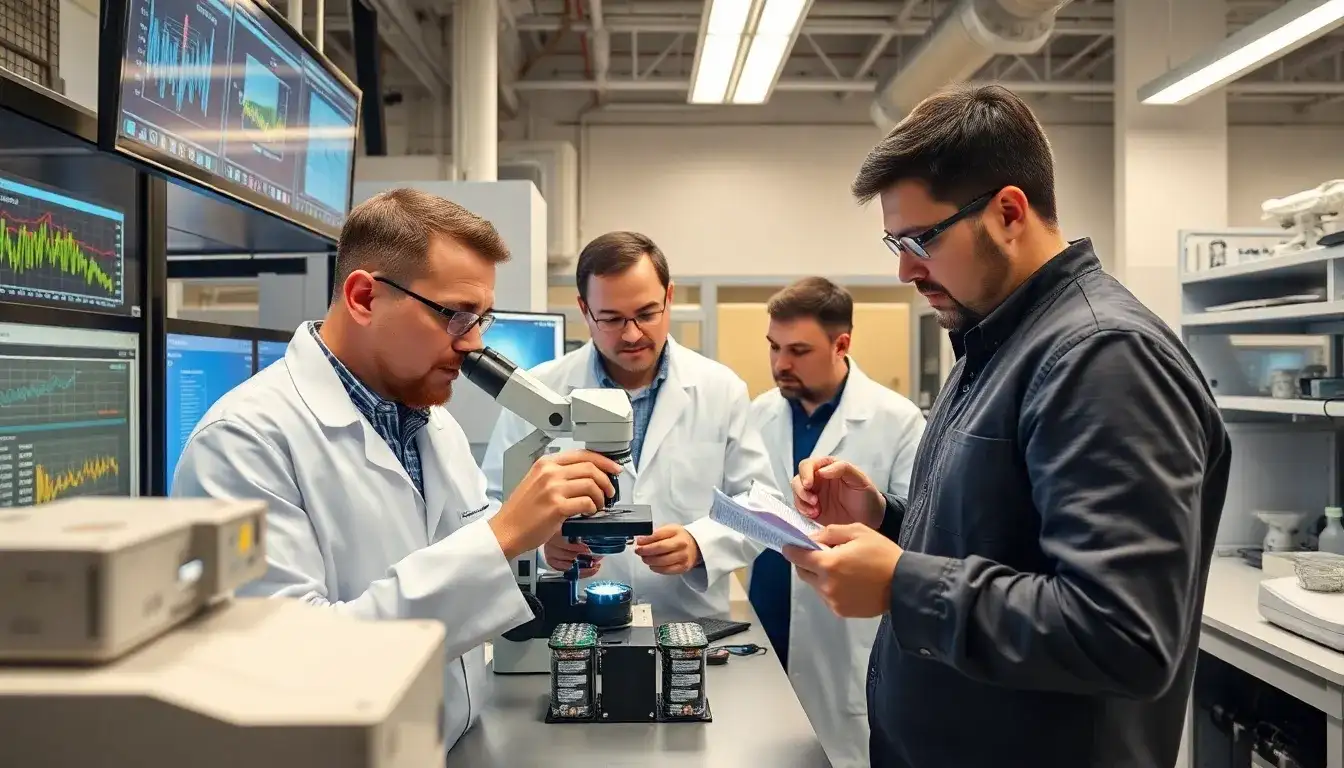
From The University of Texas-Dallas: “Engineers Discover Key Barrier To Longer-Lasting Batteries”
Materials science and engineering doctoral student Matthew Bergschneider, along with his research team, has made significant strides in understanding the breakdown of lithium nickel oxide batteries. Their findings suggest a potential solution that could facilitate the broader adoption of this material. Lithium nickel oxide (LiNiO2) has gained attention as a promising candidate for next-generation lithium-ion batteries, yet its commercialization has faced challenges due to degradation after repeated charging.
The researchers from the University of Texas at Dallas (UTD) revealed their discoveries in a paper published online on December 10 in the journal Advanced Energy Materials. Their immediate goal is to manufacture LiNiO2 batteries in the lab, eventually partnering with industry to bring this technology to market.
“The degradation of batteries made with LiNiO2 has been a longstanding issue, but the underlying cause was not fully understood until now,” said Dr. Kyeongjae Cho, a professor of materials science and engineering in the Erik Jonsson School of Engineering and Computer Science and director of the Batteries and Energy to Advance Commercialization and National Security (BEACONS) program. “With our newfound insight into this problem, we are actively working on a solution that could extend battery life for various applications, including smartphones and electric vehicles.”
This research initiative is part of UTD’s BEACONS program, which was launched in 2023 with a $30 million grant from the Department of Defense. The mission of BEACONS is to develop and commercialize innovative battery technologies, enhance the domestic supply of critical raw materials, and prepare skilled workers for careers in the growing battery-energy storage sector.
To explore why LiNiO2 batteries deteriorate during the final charging phase, the researchers employed computational modeling. This involved examining chemical reactions and the movement of electrons at the atomic level. In lithium-ion batteries, current flows from a conductor known as the cathode (the positive electrode) to the anode (the negative electrode), typically made of carbon graphite, which holds lithium at a higher potential. During discharge, lithium ions return to the cathode through the electrolyte, facilitating an electrochemical reaction that generates electricity.
The UTD team discovered that a chemical reaction involving oxygen atoms in LiNiO2 leads to instability and cracking. To address this challenge, they proposed a theoretical solution to enhance the material’s stability by introducing a positively charged ion, or cation, which modifies the properties of LiNiO2, effectively creating “pillars” that reinforce the cathode.
Matthew Bergschneider, the first author of the study, is establishing a robotics-based lab for the production of battery prototypes to investigate high-throughput synthesis methods for the newly designed pillared LiNiO2 cathodes. The robotic systems will streamline the processes of synthesizing, evaluating, and characterizing these materials.
“We will start by producing a small quantity and refining the process,” said Bergschneider, a Eugene McDermott Graduate Fellow. “Then, we aim to scale up the synthesis to manufacture hundreds of batteries weekly at the BEACONS facility. These steps are crucial for moving toward commercialization.”
Other contributors to the study include Fantai Kong PhD’17, Patrick Conlin PhD’22, Dr. Taesoon Hwang, and Dr. Seok-Gwang Doo from the Korea Institute of Energy Technology.
About The University of Texas at Dallas (UTD)
The University of Texas at Dallas is a public research institution located in Richardson, Texas. It was founded in 1961 as a private research arm of Texas Instruments and has since been classified among “R1: Doctoral Universities – Very high research activity.” UTD offers over 140 academic programs across seven schools and hosts more than 50 research centers and institutes, engaging in fields such as Space Science, Bioengineering, Cybersecurity, Nanotechnology, and Behavioral and Brain Sciences.
UT Dallas has seen substantial growth since its inception, transitioning from a graduate-only institution to a comprehensive university that now also serves undergraduate students. The university is recognized for its academic excellence and research output, with a commitment to advancing knowledge and technology in various sectors.
Original article by NenPower, If reposted, please credit the source: https://nenpower.com/blog/engineers-at-ut-dallas-uncover-solution-to-enhance-longevity-of-lithium-nickel-oxide-batteries/


